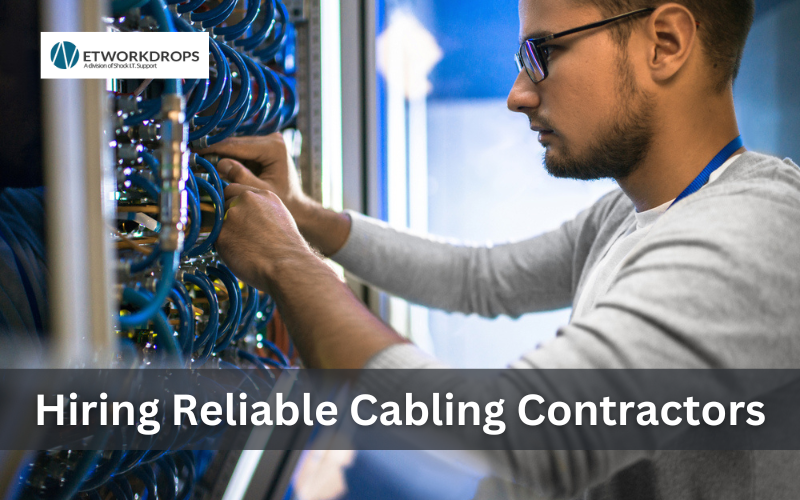
"*" indicates required fields
Selecting the right cabling contractor is crucial when installing or upgrading your office’s cabling system. A reliable contractor ensures that your network is installed efficiently, meets industry standards, and functions seamlessly. Here’s a comprehensive step-by-step checklist to guide you through hiring a dependable cabling contractor.
A cabling contractor is vital in setting up and maintaining your office’s network infrastructure. Their expertise ensures that the cabling installation is done correctly, adheres to safety standards, and supports the performance requirements of your network. Proper cabling is essential for:
Before reaching out to potential contractors, assessing your cabling needs is crucial. This involves:
Start your search by researching potential cabling contractors. Look for:
Before proceeding, verify that the contractor is appropriately licensed and insured. This includes:
Obtain detailed quotes and proposals from multiple contractors. When reviewing these documents:
Assess the contractor’s experience and track record by:
Clear communication and timeline management are critical to a successful project. Discuss:
Once you’ve selected a contractor, finalize the contract terms. The contract should include:
Ensure the contractor provides a warranty for their work and offers post-installation support. This includes:
With all the information in hand, make your final hiring decision based on the following:
When it comes to selecting a cabling contractor, Network Drops stands out as a top choice for several reasons:
By choosing Network Drops, you can be confident that your cabling project will be handled professionally and expertly, setting the foundation for a robust and reliable network infrastructure.
Hiring a reliable cabling contractor is critical in ensuring the success of your office’s cabling installation. By following this step-by-step checklist—assessing your needs, researching contractors, verifying credentials, and finalizing the contract—you can make an informed decision that meets your requirements and supports your business operations. Consider Network Drops for your next cabling project to benefit from our expertise, experience, and commitment to customer satisfaction. Start your journey to a well-installed and efficient cabling system today!
Hiring a reliable cabling contractor is crucial to ensure the success of your cabling project. A dependable contractor guarantees that the installation is done correctly, meets industry standards, and performs optimally. They provide professional expertise, reduce the risk of errors, ensure compliance with safety regulations, and offer ongoing support. A reliable contractor also helps avoid costly repairs and system downtimes, providing a stable and efficient network infrastructure.
When evaluating a cabling contractor, look for the following qualifications and certifications:
To identify a reputable cabling contractor, consider these indicators:
Handling disputes or issues involves:
Yes, a professional cabling contractor can assist with future expansions or upgrades. They can design and implement scalable cabling solutions that accommodate growth. A reputable contractor will consider future needs during the initial installation, such as including extra conduits or creating a flexible layout. They can also provide guidance and support for upgrades, ensuring new components integrate smoothly with your existing infrastructure.